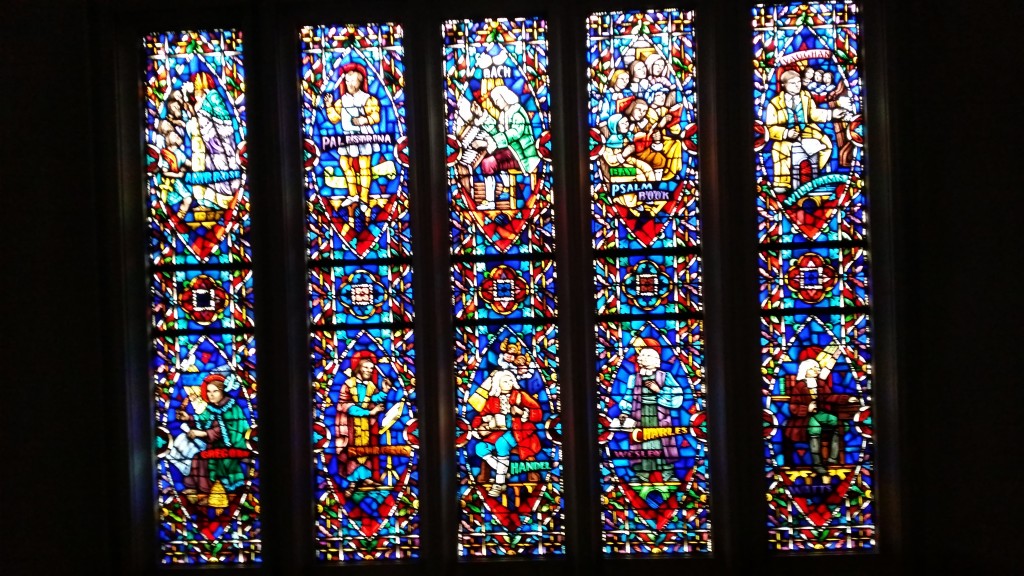CRACKS IN THE WALL
Cracks in the wall,
There by design,
Prayers on plain paper
One of them mine
Rabbis are chanting,
Torah held high,
Sunlight is fading,
In the blue sky.
Guards are watching,
Passing the time,
Nodding acquaintance
With the sublime.
Herod’s temple,
All that remains
Limestone platform,
Withstands the strain,
Mosque’s gold dome
Shines in the light,
Whose God is honored
By what’s in sight?
Prayers of the righteous
Meant to be heard,
But the papers are silent,
Say not a word.
“We want messiah”
Yeshiva boy cries,
The irony is thick,
And darkens the skies
Christians with kepas
Stand by the shrine,
Praying to Jesus,
As someone divine.
The wailing wall,
Heard Jesus’ lament
That he would have gathered,
If Zion would repent.
Cracks in the wall,
Filled up with our prayers,
Perhaps it is this,
Which keeps God right there
Perhaps when Messiah
Comes (once again),
Perhaps then the Spirit
Will descend through the air,
Perhaps then true monotheists
Will kneel at God’s feet,
Be filled with his Spirit,
The Father’s Son greet.
True children of Abram
Meet at the wall
And confess Trinity,
The One for us all.
Is this a dream– we three could be one?
Just as God is,
Whose plan is not done.
“Something there is
That doesn’t like a wall”
But this one unites
The One with us all.
9/11/05
THEOLOGICAL MUSINGS
What a bundle of contradictions and outrageous extremes Jerusalem is. And yet what a wonderful place it is as well. In some ways it is the most inviting city of all, in some ways the most forbidding. If you have spent any time there you can see why on the one hand Jesus longed to embrace the city, but on the other hand why he was unable to do so when he first walked this earth.
Going to the wailing wall is going to the ultimate meeting place for monotheists—whether Jews, Christians, or Moslems. Everyone is praying in their own way as close together as space will allow, and some, perhaps hoping God will pay more attention to words written and left in the wall, write little prayers, roll them up, and stick them between the massive Herodian stones in the retaining wall of the Temple mount, the so called Western or wailing wall. Does God hear the prayers of all three sorts of monotheistic prayers launched from this spot? Perhaps this is not the right question. Perhaps the better question would be, what does God do with all these prayers, besides listen to them? How does he answer them and why and when?
Some of this poem is simply chronicling some of the things I have actually experience at that wall, some of the things I have heard— like Orthodox Jews chanting that they want the messiah to come. But some of this poem is a reflection on whether when Jesus returns, there might be a turning to him by monotheists of all three of these religions. I remember the comment of the rabbi in Chapel Hill N.C. when he had a conversation with Dr. Bernard Boyd. Dr. Boyd said he finally was brave enough to ask the rabbi who he thought Is. 53 referred to. The rabbi got a smile on his face and said “If, when messiah comes, he has the face of Jesus, we will accept it. He was after all a Jew like us.” This seems to comport with what Paul says in Rom. 11.25-26 when he speaks of all Israel being saved when the Redeemer comes forth from heavenly Zion and turns back the impiety of Jacob. It led me to wonder if C.S. Lewis was right when he conjectured that someday true monotheists from all three of these faiths who pray to the one God of the Bible will recognize their savior and become part of one people. Is this what Jesus meant when he said that many from all points of the compass, from all races and clans, will sit down together at the messianic banquet with Abraham some day? I do not know the answer to this, but it is worth pondering. If God is indeed like Jesus, and wants no one to perish but all to have everlasting life as John 3.16 suggests, these sorts of questions should not be lightly dismissed out of hand.
One thing I know for sure. God is a God who answers prayer, and no one is a perfect pray-er. I also know that none of us have perfect theology either. Within the parameters and perimeters of Holy Writ, it is not wrong to ponder what God’s people will look like in the end. What does it mean to say that in Christ there is no Jew or Gentile, but all are one? What does it mean when Paul affirms in Romans that God is impartial, and all have sinned and fallen short of God’s glory? Whatever else it means, it means that we had best have a bit of humility when it comes to giving answers to these sort of ultimate eschatological and final questions. For now we see through a glass darkly, and it does not yet appear what we shall be.













